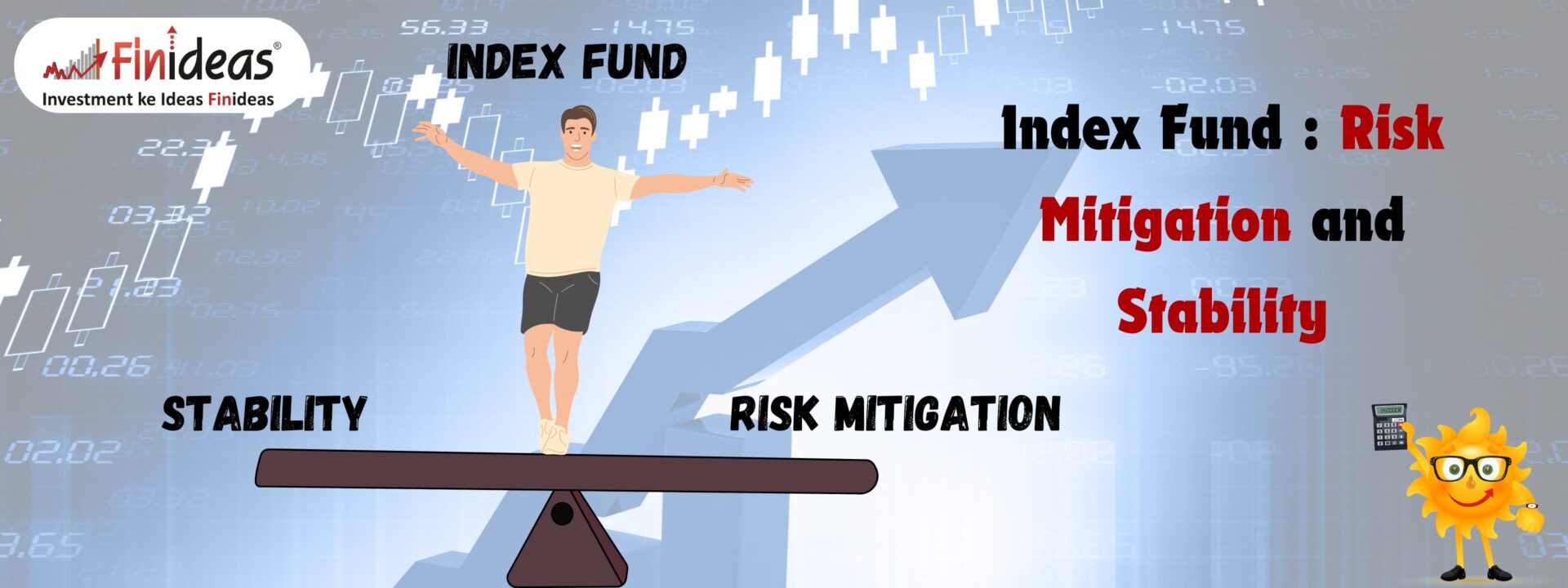Index Fund : Risk Mitigation and Stability
Investing always involves an element of risk, but savvy investors employ various strategies to mitigate potential losses and enhance stability in their portfolios. One such strategy gaining popularity is diversification through index funds.
Understanding Index Funds:
An index fund is a type of mutual fund or exchange-traded fund (ETF) designed to replicate the performance of a specific market index, such as the nifty50. Rather than relying on active management to select individual stocks, index funds aim to mirror the overall performance of the market they track.
Diversification at its Core:
The primary strength of index funds lies in their inherent diversification. By investing in an index, which typically includes a broad selection of stocks or bonds, investors spread their risk across numerous assets. This diversification reduces the impact of poor-performing individual securities on the overall portfolio.
Risk Mitigation:
Market Representation:
Index funds provide exposure to a representative slice of the market. For example, the NIFTY 50 reflects the performance of 50 of the largest publicly traded companies in India. This broad market representation helps shield investors from the extreme fluctuations that individual stocks may experience.
If the Index Fund captures your investment interest, you should have a look at Index Long Term Strategy .
Sectorial Spread:
Various indexes cover different sectors of the economy. By investing in funds tracking diverse sectors, investors further mitigate risk associated with industry-specific downturns. Even if certain sectors underperform, the impact on the entire portfolio is cushioned by the positive performance of other sectors.
Minimized Single Stock Risk:
Traditional stock-picking involves the risk of choosing poorly performing individual stocks. Index funds, however, eliminate this risk by including a multitude of stocks. The impact of one underperforming stock is diluted across the entire index.
Stability in Market Fluctuations:
Market Trends Over Time:
Historical data shows that, over the long term, the overall market tends to trend upwards. Index funds align with this trend, providing a stable foundation for investors even during periods of market volatility.
Lower Fees:
Index funds often have lower management fees compared to actively managed funds. Lower fees contribute to increased overall returns for investors, enhancing the stability of their investment portfolios.
Conclusion:
Diversification through index funds provides investors with a prudent and effective means of mitigating risk while participating in the long-term growth of the market. By embracing the stability inherent in broad market representation, investors can build resilient portfolios capable of weathering the fluctuations of the financial markets.
Have you personally utilized index funds for diversification in your investment portfolio, and if so, what factors influenced your decision to choose index funds over other investment vehicles? Comment Down Below.
Happy Investing!
This article is for education purpose only. Kindly consult with your financial advisor before doing any kind of investment.


